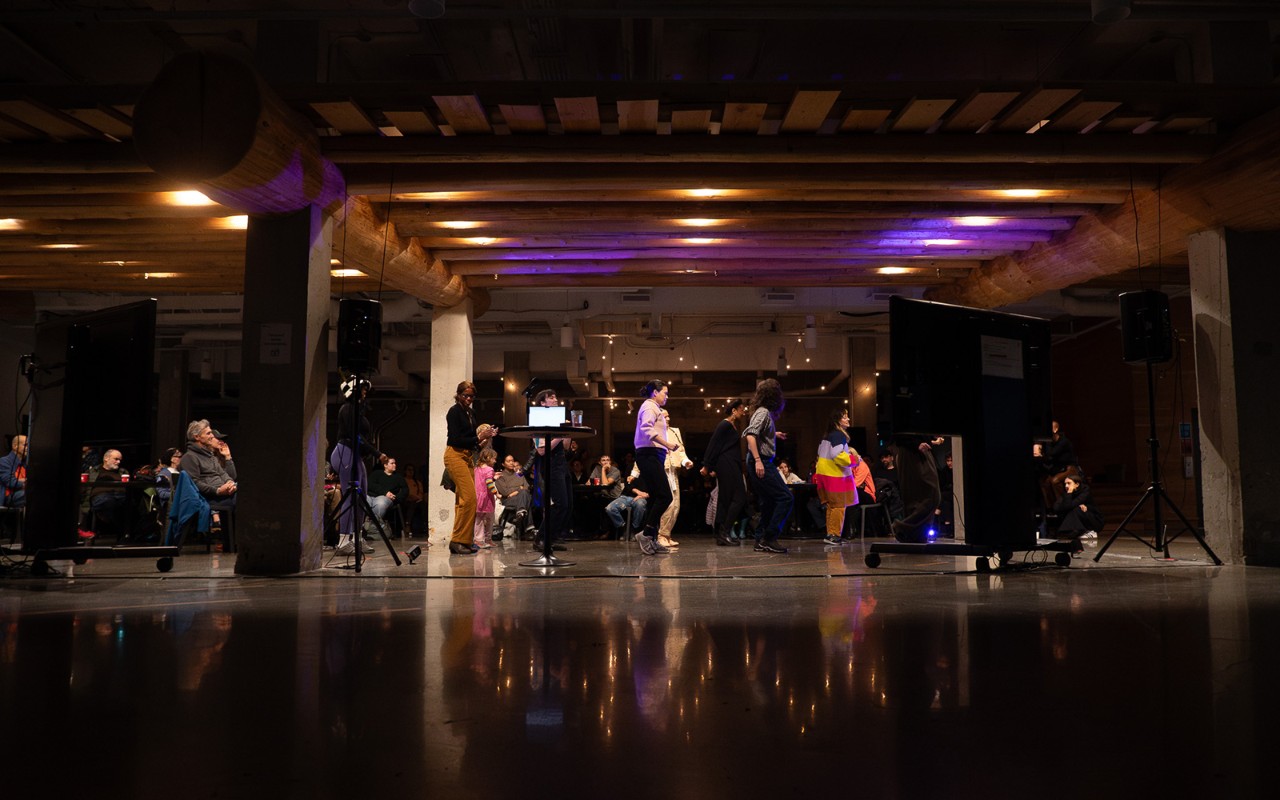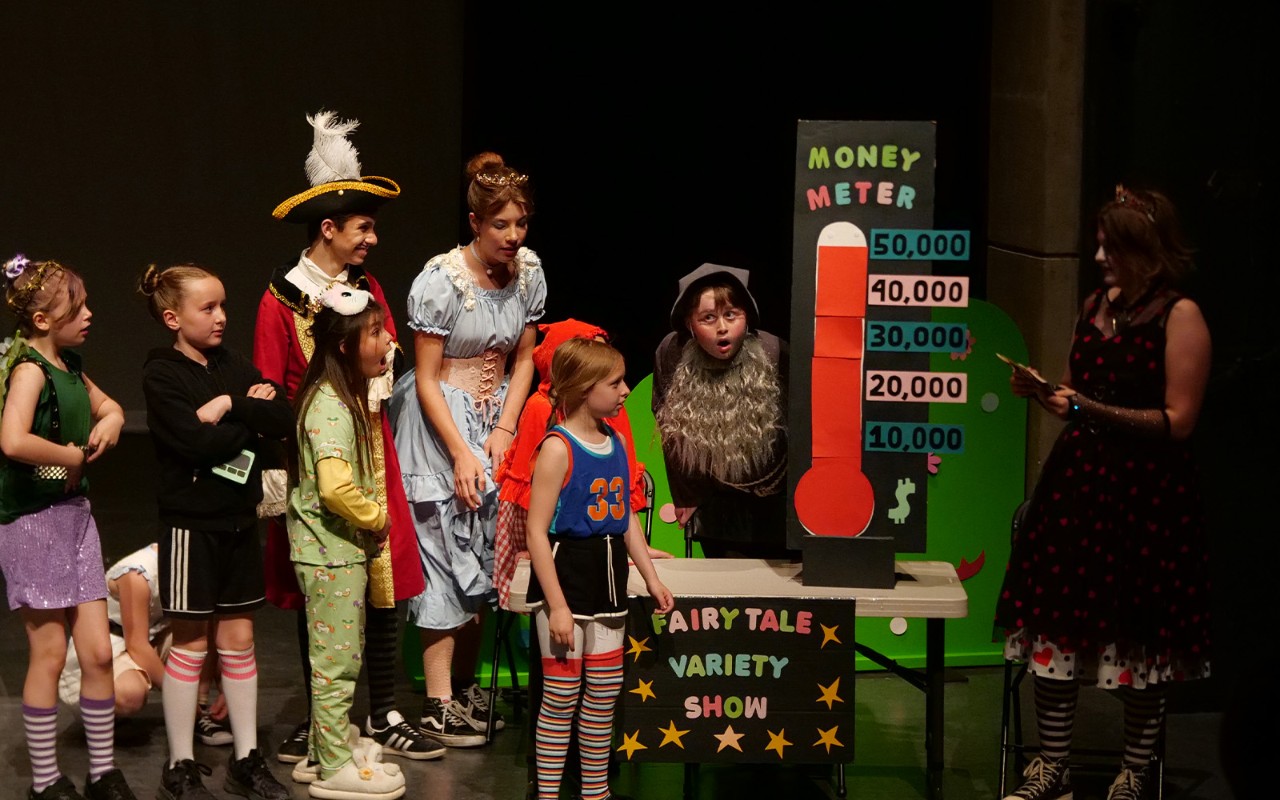Article, Social Justice, Environmental Justice
The Climate Justice & Inequality podcast series
Conversations on public policy, land defense, and a growing movement for change
In the midst of recent heat domes, mass droughts, seasonal floods, and raging wildfires in BC and across the world, it is important to understand that the impacts felt from this climate emergency are distributed with incredible unevenness.
Racialized communities are often situated near industrial infrastructure that pollutes the air and contaminates water, seniors living in isolation are succumbing to heatstroke during heatwaves, and Indigenous peoples face systemic violence as they work to protect their lands from capitalist projects that produce mass environmental devastation. As we've seen and heard from our guests, racialized and marginalized communities will experience the most severe consequences of this climate emergency.
In response to the worsening of inequalities caused by the climate crisis, climate justice activists are working to challenge systems of power that perpetuate the crisis through political restructuring, decolonization practices, legislation and law reform, and much more.
In our latest series on the Below the Radar podcast, we chatted with five leaders of the climate justice movement in Vancouver, Canada. They each talked about their personal experiences as activists and how we can work towards mitigating climate change and systemic inequality.
Colonialism and the Climate Movement
All five of our guests spoke to the importance of following Indigenous leadership when fighting for a more equitable world. We began our series with Squamish Nation Councillor and community leader Khelsilem to hear his perspective on the current state of the climate justice movement, Indigenous sovereignty and land development, and the impact of the residential school systems within Canada.
Khelsilem particularly dug into how colonialism exists within the climate movement.
“It is interesting to take note of the environmental movement, and then I think its successor, the climate movement because the genealogy of that movement definitely goes back to a very colonialist view around environmental issues.”
— Khelsilem
We also had the honour to speak with Grand Chief Stewart Phillip, current President of the Union of British Columbia Indian Chiefs. He is a life-long advocate and defender of Indigenous Peoples’ Title and Rights, and spoke with us about his first-hand experiences fighting historical battles for Indigenous land rights.
Having been an involved activist for over five decades, Grand Chief Stewart Phillip spoke about what keeps him motivated:
“It's a genuine sense of unconditional love for the land and for the people. And, you know, that has always been our focus, [my wife] Joan and myself. And we know and understand we hold the future of our grandchildren in our own two hands. And that we need to achieve everything humanly possible. And what we do not achieve, we leave behind our grandchildren to take up the fight.”
— Grand Chief Stewart Phillip
The Role of Law in Fighting for Climate Justice
While fighting for a more equitable world, many of our guests have also directly worked with legislation in their advocating for this change. Environmental lawyer Eugene Kung spoke about how law has been wielded as a mechanism for enacting colonialism and proposed various ways it can instead be used as a tool for effecting major change, and upholding human rights.
Kung is currently a staff lawyer with West Coast Environmental Law, working to stop the Kinder Morgan TransMountain expansion project, in addition to fighting with Indigenous Nations against tar sands pipelines. He discusses different legal strategies to mitigate climate change while exploring how to decentre whiteness and Western perspectives in the climate justice movement.
“And even in the short time that I've been doing this work, [...] I've seen a shift in the people who are involved in the rallies and the marches, and who shows up for those. It is much more diverse than it used to be, however, it is still, in many ways, very white-dominated in many cases [...]. So I think certainly doing our own internal work to unpack unconscious biases, and even understanding what it is to be an environmentalist, if that's the label that you want to apply. Again, for me, I actually think the path forward is to move beyond a kind of notion of environmentalism, and embed that within all of our decision making. And pointing out the values that exist in many other cultures around what we would kind of, in a Western frame, think of as conservation.”
— Eugene Kung
Digging into details of Canadian climate policies, our guest Marc Lee spoke about carbon pricing, subsidized pipelines, and lack-luster climate goals set by the government. Lee brought his expertise as a Senior Economist at the Canadian Centre for Policy Alternatives’ BC Office and as the Co-Director of the Climate Justice Project to the conversation. He emphasized the need for the climate emergency to be handled with the same level of urgency that was enacted in British Columbia’s COVID-19 response.
“When you shift it back to climate, so much of the framework, over the past decade-plus, has been around carbon pricing. And it's this sort of market logic that when you consume something that emits greenhouse gases, then you're causing some harm to other people and into the future. And therefore, we just increase the price of that to reflect those damages, then the markets will work better. And there's some logic to making it more expensive to increase the costs of emitting carbon, but you have to do that in a way that recognizes the structural challenges that a lot of low income people face, and it's not necessarily so cut and dry.”
— Marc Lee
A Growing Climate Movement
A running theme throughout the series was the need for the environmental movement to understand the interconnection between environmental and human rights issues; and in addressing this, could further increase supporter numbers, and gain more insight into nuanced perspectives and experiences surrounding climate change — allowing for greater exploration into the question of “what should the climate justice movement look like?’
Our guests discussed the deep history of how colonialism and domination were intertwined with the origins of the climate crisis. Many guests also spoke about a feeling of exclusion as people of colour from the environmental movement. Climate justice activist, communicator and organizer Anjali Appadurai shared her experience of identifying and challenging colonialism within the climate movement, and connecting the climate struggle to other human rights and social justice issues:
“And to see these issues of colonialism, human rights, of survival, of inequity be linked so deeply to climate change — which was an issue that I had thought was just as green environmental thing — was tremendously powerful and life changing. And that's when I realized the climate issue is not an environmental issue whatsoever. It's an issue of justice at its core. And there was sort of no turning back from there.”
— Anjali Appadurai
While this series may have come to a close, these conversations about the climate justice movement will only continue to grow. To listen to these episodes, read the episode transcripts, or gain access to resources from each episode — and perhaps inspire yourself to join the movement, please click the link below.
Latest Updates
-
February 19, 2025

February 19, 2025
On behalf of SFU’s Vancity Office of Community Engagement, we wanted to take the time to say that we have been overwhelmed and deeply touched by the voices of love, solidarity and support that have been shared since the announcement of the closure of our office on January 22, 2025 by SFU.
-
January 15, 2025

January 15, 2025
Can podcasting act as a new kind of scholarly form? What are the characteristics that make a podcast scholarly, and what is the potential of scholarly podcasting beyond knowledge mobilization and public scholarship? These are the questions that the Below the Radar Academic Advisory Board approached at the scholarly podcasting teach-in this past October—the first public convention of the advisory board since their inception.
-
December 18, 2024

December 18, 2024
Between October 30th to November 10th this year, the 21st annual Heart of the City festival animated the Downtown Eastside with over a hundred community-oriented events under the theme Threads of Connection.
-
September 25, 2024

September 25, 2024
The release of States of Injury — with Wendy Brown marks Below the Radar’s 250th episode—a major milestone since the podcast’s inception in 2018.
-
July 10, 2024

July 10, 2024
On June 22, the cast and crew of Project Limelight’s production of East Side Story were greeted with applause as a full house welcomed the young performers back to the Fei and Milton Wong Experimental Theatre stage.



